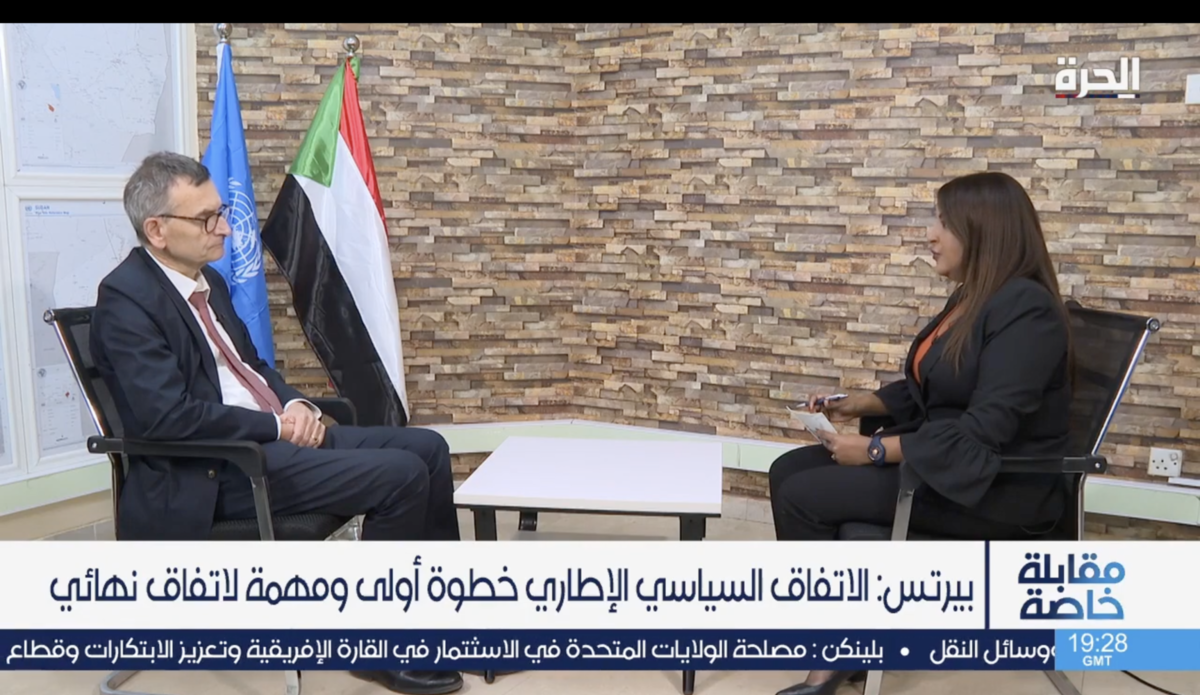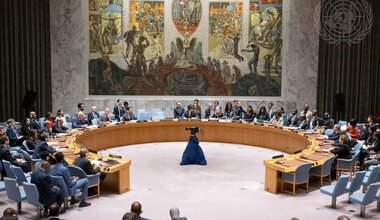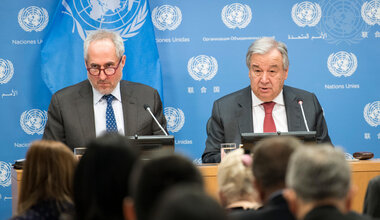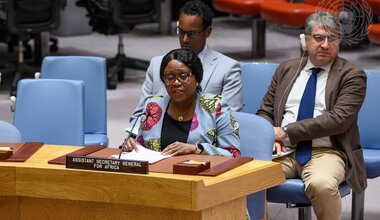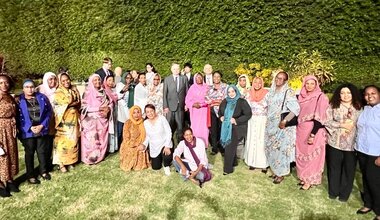Interview of the Special Representative of the Secretary-General, Volker Perthes, with Alhurra
Dear audience, welcome to this special interview from Khartoum with Mr. Volker Perthes, Special Representative of the United Nations Secretary-General to Sudan and Head of the UNITAMS Integrated Transition Assistance Mission in Sudan.
Al-Hurra: You worked on the Framework Agreement for several months and faced many challenges. What makes you optimistic that this Framework Agreement will succeed in the next stage?
SRSG Perthes: Because this agreement is in fact a first and important step towards a final agreement and towards agreeing on constitutional arrangements for a new transitional period. If we compare the situation today with the situation almost a year ago after the coup of 25 October, the military leaders then said that they would never work with the parties, especially the parties of the Forces of Freedom and Change, and the parties of Freedom and Change and the resistance committees said that they would bring down the coup within two or three weeks. Of course, neither side succeeded. And now they finally agreed to talk and engage in dialogue with each other. The agreement to return to the transition is what makes me optimistic.
Al-Hurra: There are many criticisms from the civil forces opposing this agreement, saying that it came in response to international pressure that aimed to end the crisis in Sudan and not to resolve this crisis. What is your response, Mr. Perthes?
SRSG Perthes: Of course, there was international support for Sudan, but there has been no international pressure. There was certainly an international will to end the coup, to end the political, economic and security crisis, and to restore developmental relations between Sudan and the world. This, of course, depends on some matters in the country, for example the existence of a responsible and recognized government, that would be formed by agreement of all parties.
Al-Hurra: You made a number of visits to some political forces in Sudan and also in Juba, and you met Abdul Wahid al-Nur, who rejected the political agreement in an interview with us and said that the signatories of this agreement are the same ones who caused this crisis, accusing the military component, and saying that there must be a Sudanese-Sudanese dialogue to solve this crisis. What is your response? Do you expect Abdul Wahid al-Nour and Abdul Aziz al-Hilu to join this agreement?
SRSG Perthes: Of course, Abdel Wahed al-Nour, who can speak for himself, took a stand against this agreement just as he took a stand against the previous civilian government (Hamdok's government). As for Abdel Aziz al-Hilu, as I understand, he had a slightly different position. He engaged in talks with Hamdok's government, and I expect, and he can speak for himself, that the SPLM-N will engage in new talks with the new civilian government.
Al-Hurra: Do you expect them to join this agreement in the future?
SRSG Perthes: I mean, it is not necessary to join the Framework Agreement. The important thing is that this agreement is a Framework agreement, a step that will be followed, if things proceed properly, by a final agreement and a constitution. On this basis, or new constitutional arrangements and a final agreement, a new government will be formed. Hopefully, Abdel Aziz al-Hilu and the movements not affiliated with the peace agreement will start new peace negotiations with the government.
Al-Hurra: What about the protesters in Sudanese streets? demonstrations took place a few days ago that reject this agreement, and there is also continued violence against demonstrators and detainees are still in prisons. How can the street be reassured that this agreement will be in the interest of Sudan?
SRSG Perthes: You are right, the street has no confidence in the actors. They don’t trust those who signed the agreement, and it is necessary for the signatories to prove that this agreement will truly lead to a transition or a return to a real transition with a civilian government. Of course, civilian rule was the main demand of the street. There are other legitimate demands, but the civil demand is the main one. With a fully-fledged civilian government in place, there will be other problems that require a solution, for instance the rule of law or human rights. It is better to work with a civilian government.
Al-Hurra: But people in the street accuse the Framework Agreement of neglecting fundamental issues such as accountability?
SRSG Perthes: My role, of course, is not to defend the agreement. But, let's be realistic, the agreement does not overlook the issue of accountability. On the contrary, there are some details about accountability and about dealing with the International Criminal Court, for example, and about not obstructing the judiciary and dealing with the crimes that occurred in Darfur or the capital.
Al-Hurra: In the future, what is the mission's role in the coming period?
SRSG Perthes: Of course, the mission has a role that goes beyond the good offices role of facilitating the talks between the Sudanese parties. We have a role in facilitating new peace negotiations and we have various roles in other issues such as peacebuilding, the maintenance of the ceasefire in Darfur, where the mission heads the permanent Ceasefire Committee in Darfur, as well as cooperation with the civilian government in coordinating development aid with donor countries. And I think we can better meet the needs of Sudan in the presence of a civilian government.
Al-Hurra: Will you monitor and follow up the implementation of the agreement, in the event of a final signing between the Sudanese parties?
SRSG Perthes: The mission can certainly follow implementation, but monitoring is a slightly difficult word, because it may fall within the concept of interference in the country's internal affairs. To follow and accompany the Sudanese in implementing this agreement will certainly be possible. The Sudanese parties have to agree, if they want, on the international follow-up formula for the implementation of the agreement.
Al-Hurra: Does that refer to the Trilateral Mechanism?
SRSG Perthes: Right now, the main task upon which the Sudanese parties agree is to assist and facilitate the talks in the political process that would lead to new transitional track and a civilian government. This issue is left to the parties to decide on - whether they want the Trilateral Mechanism to accompany or facilitate a comprehensive national dialogue under the auspices of the Prime Minister? If this is the case, then I think there will be an answer to that question, but that depends on the Sudanese parties.
Al-Hurra: Are you optimistic that something like what happened on October 25 of last year will not happen again?
SRSG Perthes: I think that the parties involved in the process of 25 October learned a lesson from the failure of change, as they say. Therefore, I am optimistic that the new transitional phase will lead us to free and fair elections.
Al-Hurra: When do you expect that?
SRSG Perthes: I expect the elections to take place two years after the signing of the final agreement.
Al-Hurra: Thank you very much Mr. Volker, Head of UNITAMS Integrated Transitional Assistance Mission in Sudan. You were with us on Alhurra TV from Khartoum.
SRSG Perthes: Thank you very much.
 UN
UN
